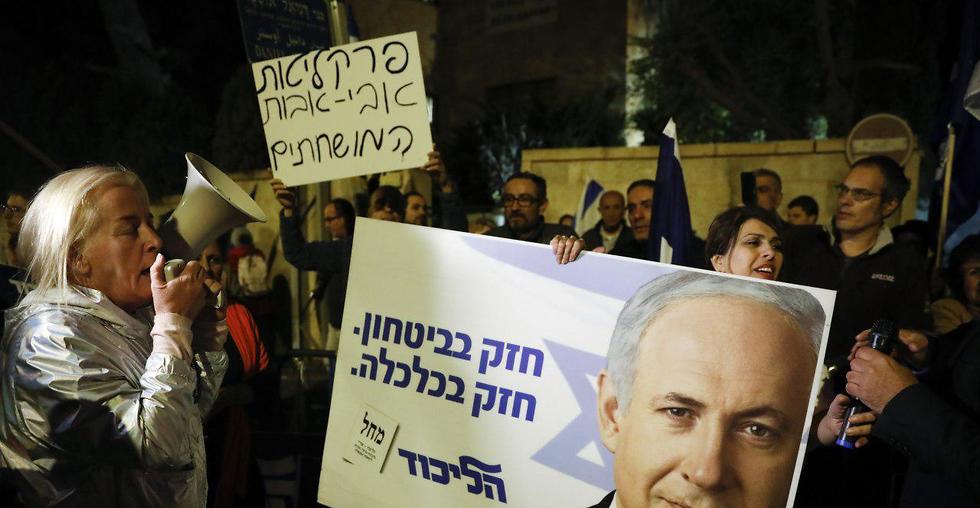Getting your Trinity Audio player ready...
The State of Israel has put itself on trial. The influence of the judiciary on the public agenda is unusual, reaching heights exceptional even by Israeli standards.
Lately, we have seen some voices demanding that given his recent indictment, Benjamin Netanyahu must be prevented from retaining the position of prime minister or receiving a mandate to form the next government.
This is no mere maneuvering to persuade the public of Netanyahu's inability to govern due to his indictment, but rather an attempt by his opponents to disregard the fact that the investigations themselves have increased the prime minister's support over the last two elections.
The political system is on its toes, waiting for Attorney General Avichai Mandelblit to decide if the indictment is enough to end Netanyahu's premiership.
If there were established legal apparatus for such a situation, the answer to this question would have been clear to all already.
A quick perusal of the Basic Law: The Government, reveals a clause titled "Removal from office pursuant to an offense."
This says in black and white: "Should the Prime Minister be convicted of an offense which the court defined as involving moral turpitude, the Knesset may remove him from office."
But now, the same people who condemned Netanyahu even before the investigation began are trying to claim that this is not applicable as Netanyahu is the merely caretaker prime minister.
3 View gallery


Attorney General Avichai Mandelblit discusses his decision to indict Benjamin Netanyahu
(Photo: AFP)
The reality is that the Basic Law explicitly refers to such a scenario in clause 30: "The outgoing Government shall continue to carry out its functions until the new Government is constituted."
But those fine minds still did not call it quits. They said that even if the Basic Law does state that the prime minister can remain in power as part of a caretaker administration, it says nothing about him forming an administration.
So these sages hastily made appealed to the Supreme Court to bar Netanyahu from forming a coalition government after the March 2 elections.
But again, to their chagrin, the Basic Law has that covered as well.
According to clause 7: "the President of the State shall, after consultation with representatives of party groups in the Knesset, assign the task of forming a Government to a Knesset Member who has notified him that he is prepared to accept the task."
Now, say Netanyahu is barred from the premiership and becomes a regular MK, what are the requisitions for him then?
Back to the Basic Law: The Knesset, which says: "Every Israeli citizen who is twenty-one years of age or over shall have the right to be elected to the Knesset, unless a court has deprived him of that right by virtue of Law, or he has been sentenced, by a final judgment, to a penalty of actual imprisonment."
So, what do we have here?
The Basic Law makes it crystal clear that when a sitting prime minister is indicted, he can remain in power until convicted, even if part of a caretaker government.
Furthermore, an indicted Knesset member is not barred from forming a coalition under both Basic Law: The Government and Basic Law: The Knesset.
The widespread support awarded to Netanyahu despite his indictment exposes an issue that will not go away when his legal battles are over.
3 View gallery


Supporters of Benjamin Netanyahu protest in Jerusalem against his indictment for corruption
(Photo: AFP)
Most of his supporters and his detractors have already lost their faith in the justice system.
Deviation from the Basic Laws and the creation of a legal precedent fuels public rage.
The solution is to apply the natural boundaries of legal discourse. The question of who can serve as prime minister has already been answered.
Any attempt to deviate from the norm by creating ad-hoc legal standards will not lead to a model society, but rather an anarchic one.


